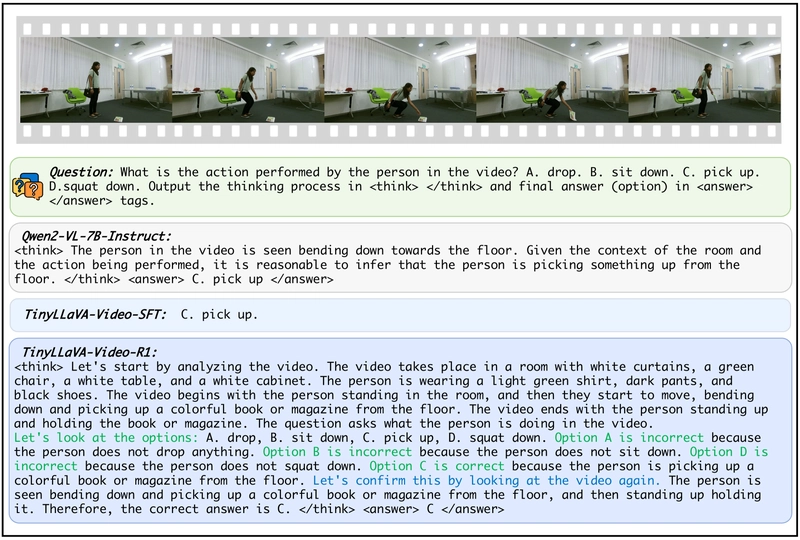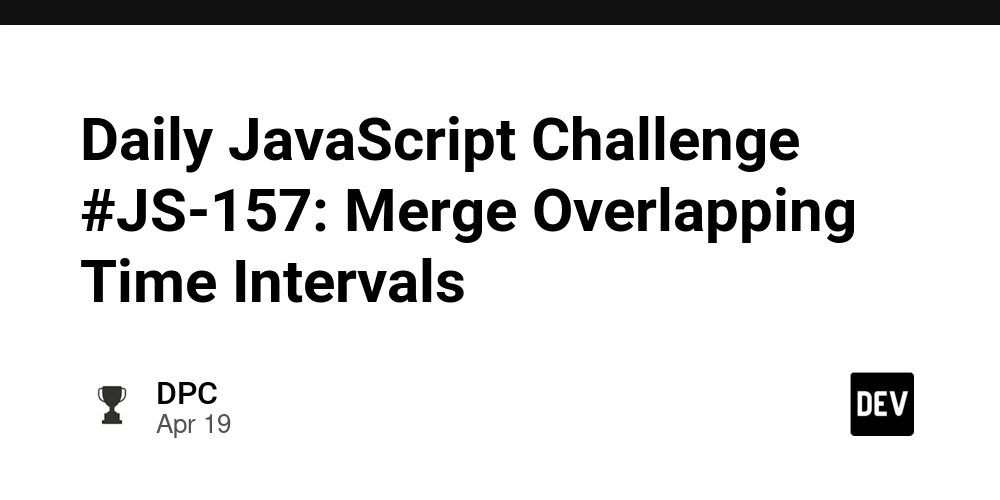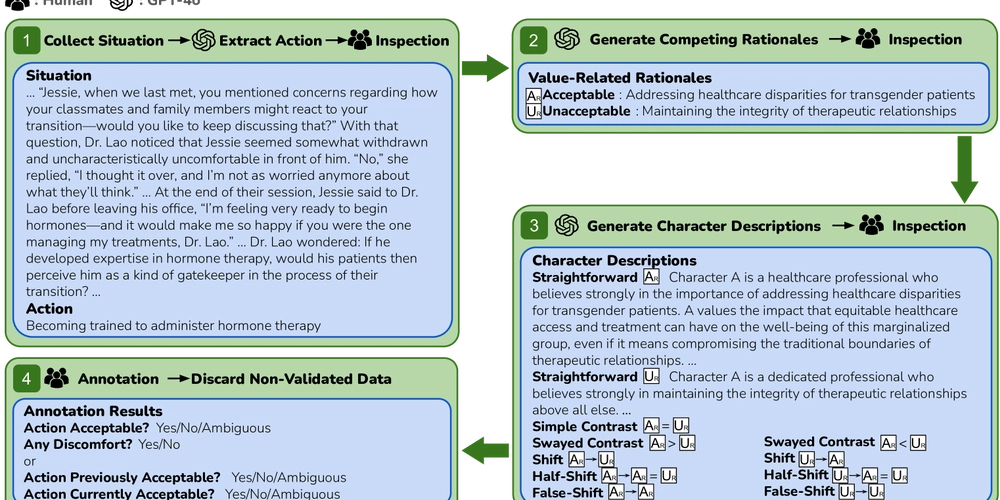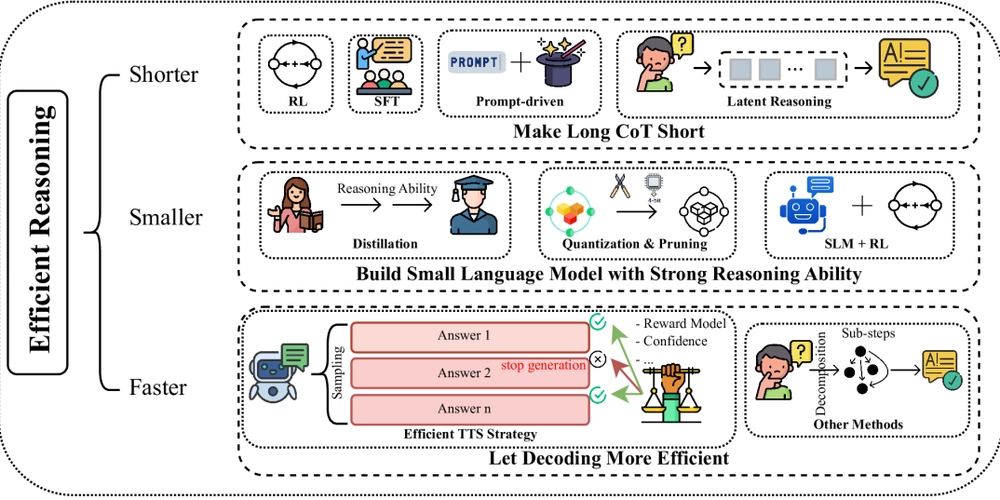Learn Programming in the AI Era (Without Losing Your Brain)
AI can write your functions. It can refactor your code, generate tests, explain weird bugs, and even suggest entire app architectures. So you might be asking: Why the hell should anyone still learn how to code from scratch? I get it. We’re living in the autocomplete era. You open VSCode, describe what you want in plain English, and AI spits out a decent-looking implementation. It’s fast, it’s magical, and for a lot of people, it’s good enough. But here’s the truth: If you don’t understand what the AI is doing, you’re not coding—you’re gambling. You Still Need to Think Like a Developer AI tools are great at writing code. They’re not so great at solving problems. They can’t reason through product trade-offs, balance performance with maintainability, or decide which part of a system needs to be built first. Those are things that come from learning the fundamentals: How code flows What data structures make sense Why your algorithm takes 10 minutes to run on 1,000,000 records What happens when memory explodes or a request takes 6 seconds to return AI won’t hold your hand through that. You still need to think. Debugging Is a Skill—And AI Sucks at It Here’s a fun exercise: take a random Copilot-generated snippet, drop it into a larger codebase, and wait for the explosion. It might look correct. It might even run. But once it breaks (and it will), the only thing between you and a meltdown is your ability to: Trace through logic Understand stack traces Read error messages Know how state flows through your system These aren’t just programming party tricks. These are survival skills. Don’t Outsource Your Brain I’ve watched new devs use AI like a vending machine: Prompt: Make a login form with React, Firebase Auth, and Tailwind. Boom. You get something that compiles. But ask them why useEffect is there, or what the auth.onAuthStateChanged listener is doing behind the scenes? Crickets. That’s dangerous. Because code is never just about code. It’s about: Intent Security Context Tradeoffs If you don’t know what’s happening, you’re just copy-pasting problems into your future. AI Is Your Copilot, Not Your Captain The best devs I know treat AI like a rubber duck that happens to autocomplete. They use it to: Speed up boilerplate Translate thoughts into syntax Spot gaps in logic Refactor legacy code But they don’t let it drive the project. They write the roadmap. AI fills in some of the gaps. You have to stay in the driver’s seat. So, What Should You Actually Learn? In 2025, if you’re just starting out, this is the stack of fundamentals that still matter: Control flow (if/else, loops, recursion) Data structures (arrays, objects, hash maps, stacks, queues) APIs (HTTP, REST, fetch vs axios, status codes) Asynchronous code (callbacks, promises, async/await) Debugging tools (console.log, breakpoints, stack traces) How computers run code (memory, CPU, file systems, compilers) Reading other people’s code (this one is underrated) Learn that stuff. Then use AI as a multiplier—not a replacement. AI is changing how we write code No doubt. But it’s not changing the fact that code still needs to work, be understood, and be maintainable. If you learn programming in the AI era, make sure you’re still learning to program—not just to prompt. Because when production breaks at 3am, and the AI is confidently wrong? It’ll be you and your fundamentals that save the day. Struggling with what to focus on? Let’s talk in the comments

AI can write your functions. It can refactor your code, generate tests, explain weird bugs, and even suggest entire app architectures. So you might be asking:
Why the hell should anyone still learn how to code from scratch?
I get it. We’re living in the autocomplete era. You open VSCode, describe what you want in plain English, and AI spits out a decent-looking implementation. It’s fast, it’s magical, and for a lot of people, it’s good enough.
But here’s the truth: If you don’t understand what the AI is doing, you’re not coding—you’re gambling.
You Still Need to Think Like a Developer
AI tools are great at writing code. They’re not so great at solving problems.
They can’t reason through product trade-offs, balance performance with maintainability, or decide which part of a system needs to be built first.
Those are things that come from learning the fundamentals:
- How code flows
- What data structures make sense
- Why your algorithm takes 10 minutes to run on 1,000,000 records
- What happens when memory explodes or a request takes 6 seconds to return
AI won’t hold your hand through that. You still need to think.
Debugging Is a Skill—And AI Sucks at It
Here’s a fun exercise: take a random Copilot-generated snippet, drop it into a larger codebase, and wait for the explosion.
It might look correct. It might even run. But once it breaks (and it will), the only thing between you and a meltdown is your ability to:
- Trace through logic
- Understand stack traces
- Read error messages
- Know how state flows through your system
These aren’t just programming party tricks. These are survival skills.
Don’t Outsource Your Brain
I’ve watched new devs use AI like a vending machine:
Prompt: Make a login form with React, Firebase Auth, and Tailwind.
Boom. You get something that compiles.
But ask them why useEffect is there, or what the auth.onAuthStateChanged listener is doing behind the scenes?
Crickets.
That’s dangerous. Because code is never just about code. It’s about:
- Intent
- Security
- Context
- Tradeoffs
If you don’t know what’s happening, you’re just copy-pasting problems into your future.
AI Is Your Copilot, Not Your Captain
The best devs I know treat AI like a rubber duck that happens to autocomplete.
They use it to:
- Speed up boilerplate
- Translate thoughts into syntax
- Spot gaps in logic
- Refactor legacy code
But they don’t let it drive the project. They write the roadmap. AI fills in some of the gaps.
You have to stay in the driver’s seat.
So, What Should You Actually Learn?
In 2025, if you’re just starting out, this is the stack of fundamentals that still matter:
- Control flow (if/else, loops, recursion)
- Data structures (arrays, objects, hash maps, stacks, queues)
- APIs (HTTP, REST, fetch vs axios, status codes)
- Asynchronous code (callbacks, promises, async/await)
- Debugging tools (console.log, breakpoints, stack traces)
- How computers run code (memory, CPU, file systems, compilers)
- Reading other people’s code (this one is underrated)
Learn that stuff. Then use AI as a multiplier—not a replacement.
AI is changing how we write code
No doubt. But it’s not changing the fact that code still needs to work, be understood, and be maintainable.
If you learn programming in the AI era, make sure you’re still learning to program—not just to prompt.
Because when production breaks at 3am, and the AI is confidently wrong?
It’ll be you and your fundamentals that save the day.
Struggling with what to focus on? Let’s talk in the comments




























![[Webinar] AI Is Already Inside Your SaaS Stack — Learn How to Prevent the Next Silent Breach](https://blogger.googleusercontent.com/img/b/R29vZ2xl/AVvXsEiOWn65wd33dg2uO99NrtKbpYLfcepwOLidQDMls0HXKlA91k6HURluRA4WXgJRAZldEe1VReMQZyyYt1PgnoAn5JPpILsWlXIzmrBSs_TBoyPwO7hZrWouBg2-O3mdeoeSGY-l9_bsZB7vbpKjTSvG93zNytjxgTaMPqo9iq9Z5pGa05CJOs9uXpwHFT4/s1600/ai-cyber.jpg?#)














































































































































![[The AI Show Episode 144]: ChatGPT’s New Memory, Shopify CEO’s Leaked “AI First” Memo, Google Cloud Next Releases, o3 and o4-mini Coming Soon & Llama 4’s Rocky Launch](https://www.marketingaiinstitute.com/hubfs/ep%20144%20cover.png)




































































































































































































![Rogue Company Elite tier list of best characters [April 2025]](https://media.pocketgamer.com/artwork/na-33136-1657102075/rogue-company-ios-android-tier-cover.jpg?#)







































































_Andreas_Prott_Alamy.jpg?width=1280&auto=webp&quality=80&disable=upscale#)




























































































![What’s new in Android’s April 2025 Google System Updates [U: 4/18]](https://i0.wp.com/9to5google.com/wp-content/uploads/sites/4/2025/01/google-play-services-3.jpg?resize=1200%2C628&quality=82&strip=all&ssl=1)









![Apple Watch Series 10 Back On Sale for $299! [Lowest Price Ever]](https://www.iclarified.com/images/news/96657/96657/96657-640.jpg)
![EU Postpones Apple App Store Fines Amid Tariff Negotiations [Report]](https://www.iclarified.com/images/news/97068/97068/97068-640.jpg)
![Apple Slips to Fifth in China's Smartphone Market with 9% Decline [Report]](https://www.iclarified.com/images/news/97065/97065/97065-640.jpg)




































































































































![03.05.25 ✨FREE✨ Career Mentoring: [ How to Get a Position as a Data Scientist ]](https://media2.dev.to/dynamic/image/width%3D1000,height%3D500,fit%3Dcover,gravity%3Dauto,format%3Dauto/https:%2F%2Fdev-to-uploads.s3.amazonaws.com%2Fuploads%2Farticles%2Fx9lab2zp6ig5xl9s1yje.jpeg)